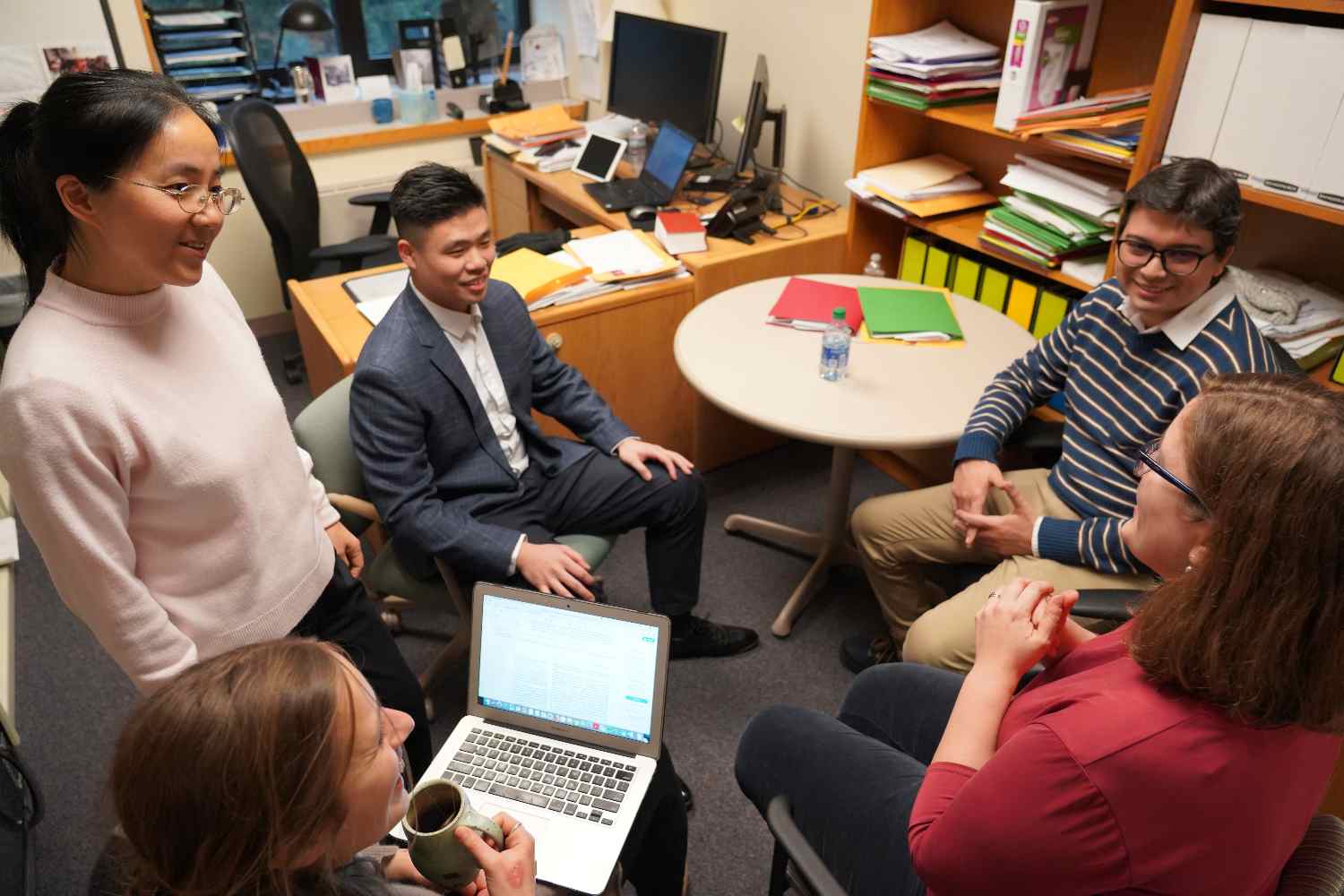MESA
Measurement, Evaluation, Statistics, and Assessment

MESA
Measurement, Evaluation, Statistics, and Assessment
With a focus on solving critical, global problems, our Measurement, Evaluation, Statistics, and Assessment (MESA) programs integrate state-of-the-art research design, statistical methods, and testing. Our coursework blends theory and application, preparing students for careers in government, testing organizations, nonprofits, and schools.
Drawing on the Lynch School aspiration to “enhance the human condition, to expand the human imagination, and to make the world more just," the mission of the MESA program is to:
In service of this mission:
Students engaging in Measurement, Evaluation, Statistics and Assessment programs benefit considerably from the location of Boston College. Boston as a city is one of the richest post-secondary environments in the world, and offers a diverse range of educational environments.
The Boston College O'Neill Library has an excellent collection of books and journals in higher education and educational leadership resulting from decades of focus in the field. The university offers strong supporting faculty in education, management, and the social sciences, and a strong tradition of collaborative scholarship.
Close relations with other academic institutions in the area mean extensive opportunities for internships and research around the metropolitan area. Boston College's Jesuit identity also offers an underlying concern with social justice issues that is unique among education programs, and of course the program benefits from the Jesuit tradition of rigorous intellectual discourse.
A degree or other background in math is not required for admission to the MESA program. Some MESA students have a moderate math or statistics background, and a few students have a deep math or statistics background. Your bachelor’s or master's degree may be in any field. We have had students with backgrounds in music, business, sociology, psychology, etc. The critical issue is your interest and intentions with attaining this form of specialized training.
Nearly all MESA students have some education background. For admission to MESA, teaching experience and/or an education degree is not required, but some exposure to important issues in education is a benefit. Of more interest to us is what you want to study and research while in the program and what you want to do when you graduate.
No, you can apply to the Ph.D. program with a bachelor’s degree only. This is considered applying for the Direct Admit Ph.D. degree. This route is available for the occasional BA/BS student who has a strong undergraduate quantitative research background. It is 72 credits, which is 12 credits less than the normal 30 credit M.Ed. degree and 54 credit Ph.D. programs combined.
One way to think of the M.Ed. and M.S. degrees versus the Ph.D. degree is what you plan to do with what you learn. If you want to become a more informed and critical reader of research and to develop more sensitive assessment and evaluation skills as a teacher or other education/social science professional, then the M.Ed. is a good choice. The M.S. prepares you for a career in applied statistics or psychometrics. If you are thinking of a significant career change in the sense of becoming a full-time graduate student with goals of becoming an independent consultant, director of institutional research, or college professor of measurement, etc. then the doctoral degree is the way to go. If you are unsure, it is best to request a meeting with the department chair, Laura O'Dwyer, to discuss your interests.
The national and international demand for sophisticated education researchers is reflected through the two world-renowned MESA-affiliated research centers.
A global leader in educational assessments: Trends in Mathematics and Science Study and Progress in International Reading Literacy Study.
CSTEEP strengthens school assessment practice and policy with research, engagement, and advocacy.
Contributing to national and international efforts to solve critical educational and human problems in a diverse global community

Guided by world-class faculty, MESA Ph.D. students develop the inquiry skills needed to produce relevant and insightful research.
Ph.D. in Measurement, Evaluation, Statistics, and Assessment